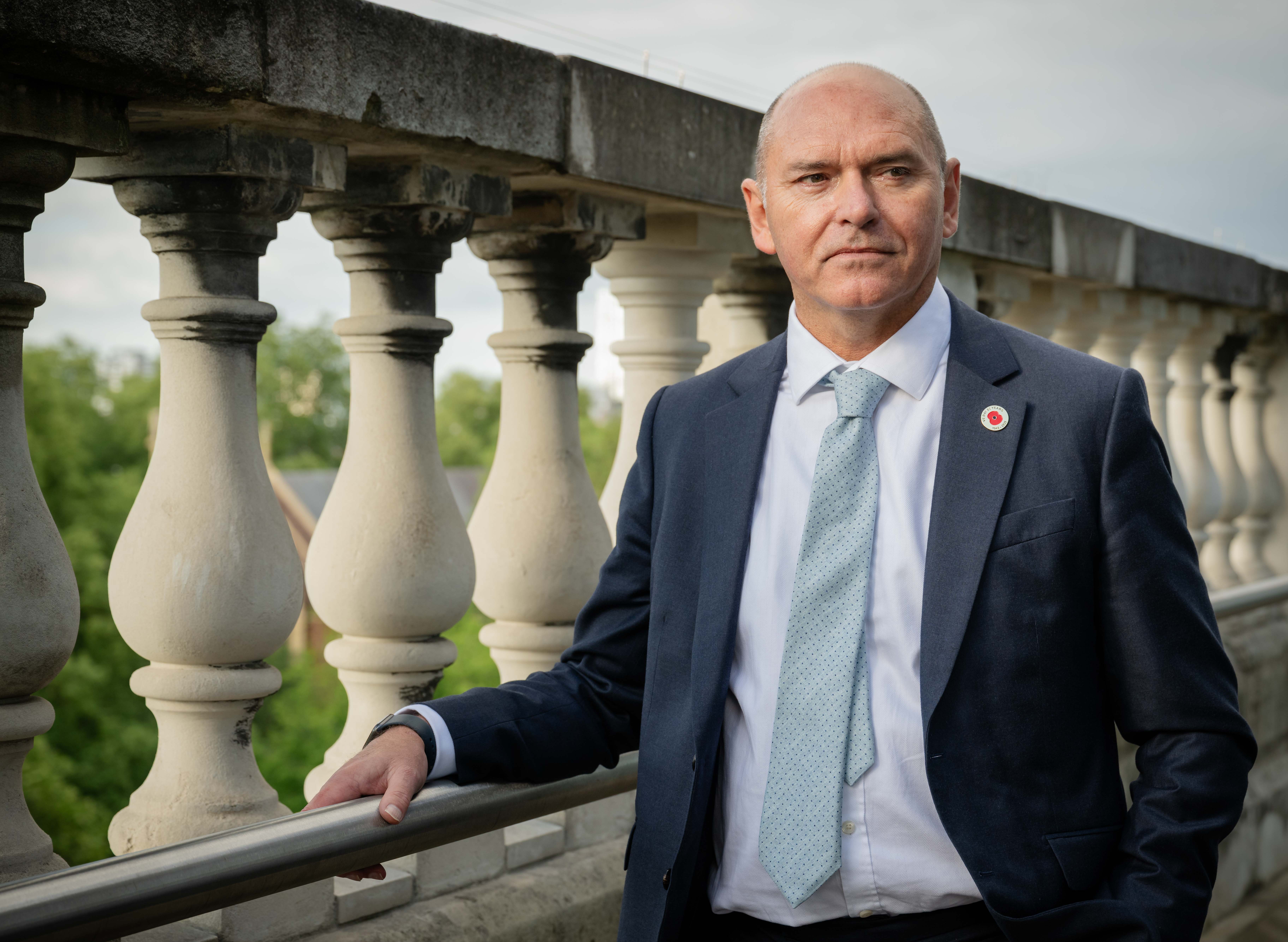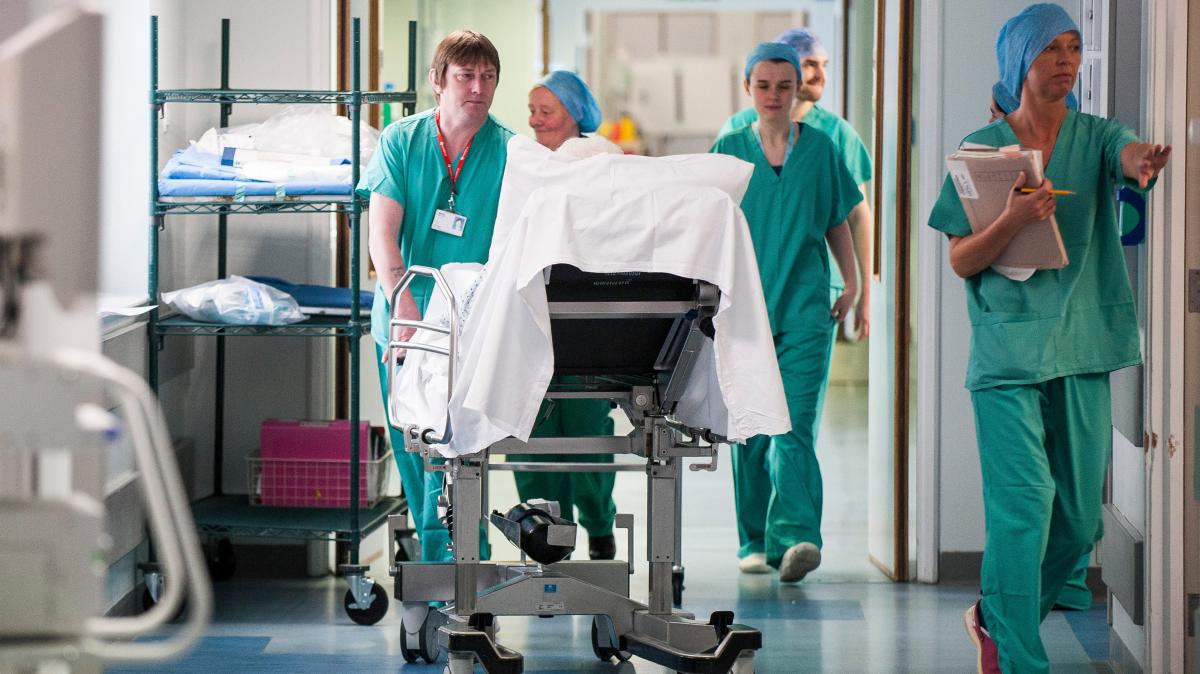Millions of patients face longer delays for treatment as health chiefs impose minimum waiting times to tackle an NHS “addiction to deficits”.
Leading doctors warned of patients waiting in pain and fear as clinical decisions were “distorted” to cut costs and deal with the financial crisis in healthcare.
Health chiefs have quietly begun telling hospitals they will only pay for services once patients have waited three months or more for treatments such as hip replacements and cataract operations.

Sir Keir Starmer is aiming to hit a target of 92 per cent of routine operations and appointments within 18 weeks
LEON NEAL/GETTY IMAGES
The policies are designed to reduce the number of people being treated this year and so reduce payments to hospitals. The development comes after the new head of the NHS told local health bosses to “get a grip” on billions of pounds of overspending.
Ministers are preparing to launch a ten-year plan designed to make care better, faster and more efficient as Sir Keir Starmer aims to hit a target of 92 per cent of routine operations and appointments within 18 weeks. The goal has not been hit for a decade and the plan is expected to promise an expansion of patient choice to encourage people to “shop around” for shorter waits.
Senior health sources have warned that this risks being undermined as local NHS bodies impose minimum waiting time rules that stop hospitals competing for patients by promising faster treatment.
Ministers are adamant, however, that the NHS must “learn to live within its means”. A government briefing on the ten-year plan seen by The Times says that “the NHS has developed an addiction to deficits” and warns of a “major productivity crisis” as extra cash has not led to improvement.
• Inside the biggest overhaul of the NHS in its history
The plan promises to “end the practice of providing additional funding to cover deficits” and demand a big improvement in productivity.
On taking over as NHS chief executive in March, Sir Jim Mackey told health chiefs to “get a grip” on deficits heading towards £7 billion. He gave the green light to minimum waits as a way of controlling spending, saying it would “help us support other priorities” such as cancer or mental health.
Now at least eight local “integrated care boards” covering a population of more than ten million people have confirmed to local hospitals that they will be introducing minimum waits.

Sir Jim Mackey, the chief executive of NHS England
JOHN NGUYEN/MHP GROUP
Policies include blanket minimum waits of 12-16 weeks; some areas like Devon say a 14-week wait should apply to “clinically routine cases”. In Shropshire, a minimum wait of 16-18 weeks applies “unless there is verifiable clinical urgency”. South Yorkshire acknowledges that as a result of “significant financial challenge” the region is “requiring providers to slow down the rate of delivery to a minimum of 13 weeks”.
In northeast London, bosses say an interim goal of treating 65 per cent of patients within 18 weeks will be a maximum, citing a “reduction in the amount of [routine treatment] money available”.
Others vary more by treatment area; Cheshire and Merseyside are imposing a 3.4-week minimum for day-case ophthalmology treatment such as cataracts, rising to 28.5 weeks for inpatient ear, nose and throat cases.
Tim Mitchell, the president of the Royal College of Surgeons, said: “Used in this way, minimum waiting times risk distorting clinical priorities and leaving patients in unnecessary pain and anxiety. Treatment should be delivered as promptly as possible, based on clinical need. We recognise the financial pressures facing the NHS but delaying treatment to balance the books is not the answer.”
Caroline Abrahams of Age UK said: “We are worried that activities that are often viewed in the NHS as of lower priority, such as cataract surgery or joint replacement, may be those subjected to minimum waits.
“What is a low priority for the NHS may be hugely important for an older person, especially if they can’t get out and live a normal life because they can’t see well enough as they wait for cataract surgery, or are too disabled to move around because of a hip or knee that is totally worn out. Older people like these will also often be living in constant pain and at risk of depression and other mental health problems.”
• Keir Starmer promised to fix the NHS. A year on, has he succeeded?
She added that “prioritising care and treatment must always be based on need, recognising the very real adverse impact of enduring a long wait”, warning that people may deteriorate while on long waiting lists.
An NHS spokesman said: “We have asked all parts of the NHS to bring waiting times down while we continue to prioritise the most clinically urgent patients. We are working closely with all systems to ensure they deliver the expected level of improvement in waiting times.”
